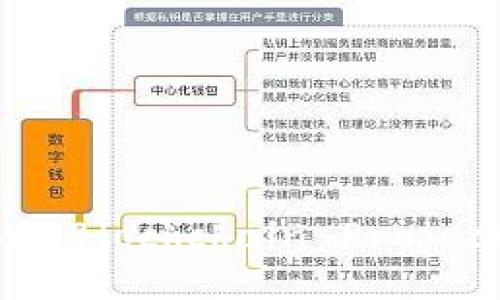Introduction to Blockchain Projects
In recent years, blockchain technology has emerged as one of the most significant innovations across various sectors. Originally popularized by Bitcoin, the first decentralized cryptocurrency, blockchain has evolved into an ecosystem that supports various applications beyond finance. From supply chain management to digital identity verification, numerous projects harness blockchain's potential to create trust, transparency, and efficiency. This article delves into the diverse perspectives surrounding blockchain projects, examining both their opportunities and challenges.
Opportunities Presented by Blockchain Projects

One of the most compelling aspects of blockchain projects is the myriad opportunities they present for innovation and disruption. Here are some key areas where blockchain is making a significant impact:
1. Decentralization
At its core, blockchain technology is built on the principle of decentralization, which allows data to be distributed across a network of computers rather than being held in a single location. This decentralization reduces the risk of data breaches and enhances security, as there is no single point of failure. Additionally, it empowers users by giving them control over their data and eliminating intermediaries, such as banks or brokers, in transactions.
2. Transparency and Trust
Another promise of blockchain is its ability to enhance transparency. Each transaction on a blockchain is recorded in a public ledger, allowing participants to verify information independently. This level of transparency fosters trust among users, which is particularly crucial in sectors like supply chain management, where stakeholders require assurance about the authenticity of products.
3. Smart Contracts
Smart contracts are self-executing contracts with the terms of the agreement directly written into code. They automate processes, reducing the need for intermediaries and minimizing transaction costs. Businesses can optimize their operations, increase efficiency, and decrease the time required to negotiate and enforce agreements by utilizing smart contracts.
4. Financial Inclusion
Blockchain has the potential to enhance financial inclusion, particularly in underbanked and unbanked regions. By providing access to decentralized financial services, individuals can participate in the global economy without needing a traditional bank account. This democratization of finance can empower millions, enabling them to save, invest, and transact securely.
Challenges Faced by Blockchain Projects
While the opportunities presented by blockchain are significant, it is essential to recognize the considerable challenges that accompany these projects:
1. Regulatory Uncertainty
One of the primary obstacles faced by blockchain projects is regulatory uncertainty. Governments and regulatory bodies around the world are still grappling with how to classify and manage blockchain technology and cryptocurrencies. This uncertainty can deter investors and hinder the growth of blockchain projects, as companies may fear legal repercussions or may not know how to navigate complex compliance issues.
2. Scalability Issues
Another challenge is scalability. Many blockchain networks struggle to process transactions at the scale required for widespread adoption. For instance, Bitcoin can handle approximately seven transactions per second, while Ethereum can manage around 30. In contrast, traditional payment systems like Visa can process thousands of transactions per second. This limitation affects performance and user experience, making it essential for blockchain developers to focus on scalability solutions.
3. Environmental Concerns
Blockchain technology, particularly Proof of Work (PoW) systems like Bitcoin, has drawn criticism for its significant energy consumption and environmental impact. The energy-intensive mining process contributes to carbon emissions and raises questions about the sustainability of blockchain technology. As the world increasingly prioritizes environmental sustainability, blockchain projects must address these concerns by exploring eco-friendly alternatives.
4. Interoperability Challenges
Blockchain networks often operate in silos, limiting communication and interaction between different systems. Interoperability is crucial for the broader adoption of blockchain solutions; without it, users may struggle to transfer assets and share data across platforms. Solutions to enhance interoperability, such as cross-chain protocols, are essential for unlocking the full potential of blockchain technology.
Related Questions About Blockchain Projects

Question 1: How is blockchain technology transforming various industries?
Blockchain technology is transforming various industries in profound ways. In finance, it provides faster and more secure transactions while reducing intermediaries. In healthcare, blockchain can secure patient records, ensuring that sensitive information is shared only with authorized personnel. Supply chain management benefits from blockchain by providing end-to-end visibility, enhancing accountability, and reducing fraud.
In real estate, blockchain can simplify property transactions by automating the title transfer process and ensuring transparency in ownership records. Additionally, energy sectors are exploring blockchain for peer-to-peer energy trading, allowing consumers to sell excess energy directly to their neighbors. These innovations illustrate how blockchain technology can disrupt traditional practices and lead to more efficient systems across diverse industries.
Question 2: What role do cryptocurrencies play in the blockchain ecosystem?
Cryptocurrencies are pivotal in the blockchain ecosystem, serving as the native tokens used to facilitate transactions and incentivize network participants. In addition to enabling peer-to-peer transactions without intermediaries, cryptocurrencies help secure blockchain networks. Miners or validators are rewarded with cryptocurrencies for confirming transactions, thus maintaining the integrity and security of the system.
Furthermore, cryptocurrencies facilitate various decentralized finance (DeFi) applications, allowing users to lend, borrow, and earn interest on their assets without traditional banking services. The rise of decentralized autonomous organizations (DAOs) has also introduced new governance models where cryptocurrency holders can vote on project decisions. Consequently, cryptocurrencies stimulate economic activity within the blockchain ecosystem, driving innovation and creating new business models.
Question 3: What are the future trends in blockchain technology?
The future of blockchain technology is characterized by several trends that hold great promise for further adoption and impact. First, we can expect the rise of Layer 2 solutions aimed at enhancing scalability and transaction speeds of existing blockchain networks. These solutions, such as the Lightning Network for Bitcoin and Ethereum's Layer 2 projects, offer mechanisms to process transactions off-chain while maintaining the security of the underlying blockchain.
Secondly, advancements in interoperability solutions will enable seamless communication between different blockchain networks, fostering a more interconnected ecosystem. The emergence of cross-chain platforms will facilitate the transfer of assets and data, unlocking new opportunities for collaboration and innovation.
Additionally, businesses will increasingly adopt hybrid blockchain solutions that combine the benefits of public and private chains, allowing organizations to maintain data privacy while still benefiting from the transparency of public networks. This flexibility will cater to various use cases and compliance requirements.
Lastly, the continued focus on environmental sustainability will drive the development of eco-friendly consensus mechanisms, such as Proof of Stake (PoS), which significantly reduce energy consumption. As climate awareness grows, the adoption of greener blockchain technologies will be crucial for long-term viability.
Conclusion
Blockchain technology represents a significant leap forward in how we conduct transactions and manage data across various sectors. With its potential for decentralization, transparency, and efficiency, blockchain projects offer a wealth of opportunities. However, challenges such as regulatory uncertainties, scalability issues, and environmental concerns must be addressed for blockchain to realize its full potential.
As technology continues to evolve, it is essential to foster open discussions surrounding blockchain projects, considering diverse perspectives and exploring solutions to obstacles. By doing so, we can navigate the future of blockchain strategically, leveraging its transformative capabilities for positive change in our societies.